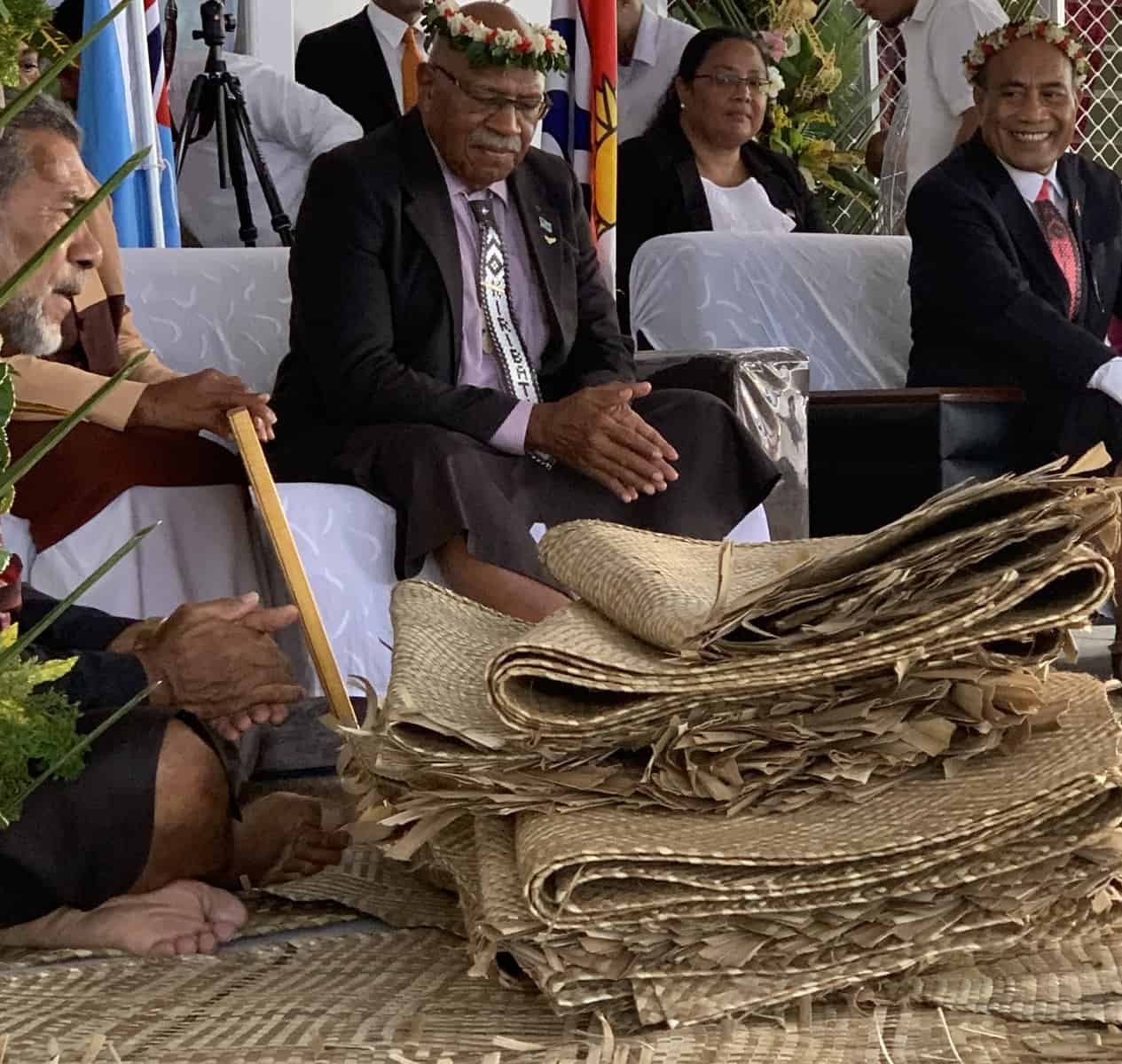Kiribati will rejoin the Pacific Islands Forum after Forum Chair, Fiji Prime Minister Sitiveni Rabuka’s state visit to Tarawa this month.
That visit started with a handshake between Rabuka and Kiribati President, Taneti Maamau, and ended with an embrace.
A week after the Fiji delegation returned to Suva, an official letter confirming Kiribati’s return arrived.
Kiribati withdrew from the Forum last year, stating in a letter to PIF: “the collective inability, and to some degree, reluctance as . . .
Please Subscribe to view full content...
